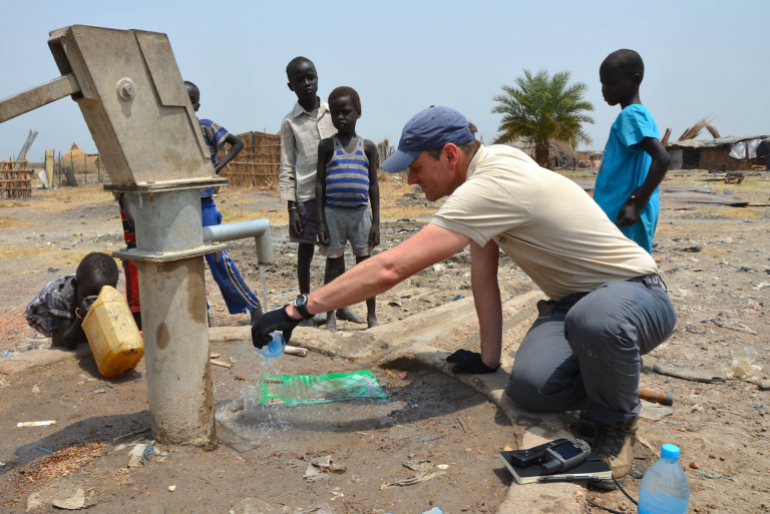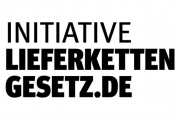Why the German Supply Chain Act is not enough
The entry into force of the Act on Corporate Due Diligence Obligations in Supply Chains on January 01, 2023 represented a paradigm shift: German companies are required to take responsibility in their supply and production chains and ensure compliance with human rights and environmental standards. The law is a first step towards supporting people who are exploited in supply chains for the profit of German companies. What is needed now is strict implementation of the law.
Nevertheless, the German Supply Chain Act has some gaps and weaknesses, for example:
- It offers affected people few options to hold companies accountable in German courts when their rights are violated.
- The legislator downgrades the due diligence obligations of companies in supply chains - in the case of indirect suppliers, companies only have to conduct risk analyses on an ad hoc basis and not proactively.
These gaps must be closed by a far-reaching and strong EU Supply Chain Act, so as to ensure the protection of people and the environment along the entire supply chain and provide people with access to compensation. On June 01, 2023, the EU Parliament voted in favor of the EU Supply Chain Act - this vote paves the way for European, binding legislation. In the next step, the EU Parliament will continue the legislative process with the EU Council and the EU Commission in a trilogue and agree on a common regulation.
Our commitment to a strong Supply Chain Act
Sign of Hope has been committed to strong supply chain legislation for years. As part of the Supply Chain Law Initiative, we lobbied for the German Supply Chain Act and are currently advocating for a strong EU Supply Chain Act. In doing so, we engage in exchange with relevant actors such as European parliamentarians, organise events, publish articles on the topic, and conduct petitions, among other things.
Supply chain of suffering: from South Sudan to Germany
Sign of Hope has been working since 2009 to help the people of South Sudan, whose health is threatened by oil production in the country. The drinking water of hundreds of thousands of South Sudanese is being poisoned by oil companies that allow large amounts of wastewater contaminated with heavy metals and salts to seep away. As a result, many of the wells in villages in Unity State can no longer be used. The oil production areas in South Sudan are the beginning of a supply chain of suffering that reaches all the way to Europe. In Germany, too, crude oil is consumed in everyday products. On the ground, Sign of Hope is actively seeking solutions to provide the people of Unity State with access to safe drinking water and, despite the difficult conditions in Unity State, is supporting the construction and rehabilitation of deep wells. In addition, Sign of Hope has developed digital solutions to detect oil leaks in the area.
Frequently Asked Questions
1. What is the German Supply Chain Act?
2. What is the law intended to protect against?
3. To whom does it apply?
4. What is the EU Supply Chain Act?
1. What is the German Supply Chain Act?
The Act on Corporate Due Diligence Obligations in Supply Chains represents the binding assurance of human rights and environmental standards in supply chains of German companies. Companies must ensure in all steps at home and abroad in the manufacture of a product or the provision of a service that people and the environment do not take any harm. This means that due diligence obligations must be complied with and risk analyses carried out in order to identify and prevent human rights and environmental risks at an early stage. back
2. What is the law supposed to protect against?
The Supply Chain Act is intended to protect against human rights violations such as child labor, forced labor, lack of occupational health and safety, and environmental degradation in the supply chains of German companies. back
3. Who does it apply to?
From 2023, the law will initially apply to companies with a registered office or branch office in Germany and more than 3,000 employees - this affects around 700 companies in Germany. From 2024, it will apply to companies with more than 1,000 employees - this includes around 2,900 companies in Germany. back
4. What is the EU Supply Chain Act?
The German Supply Chain Act is a first binding step towards securing human rights and environmental standards in supply chains - but it has some weaknesses. The EU Supply Chain Act, the Corporate Sustainability Due Diligence Directive, introduces binding standards across Europe to protect people and the environment and can thus close the gaps in the German law. On June 01, 2023, the EU Parliament voted in favor of the EU Supply Chain Act. In the next step, the EU Parliament will continue the legislative process in trilogue with the EU Council and the EU Commission. back


 Donate now
Donate now










